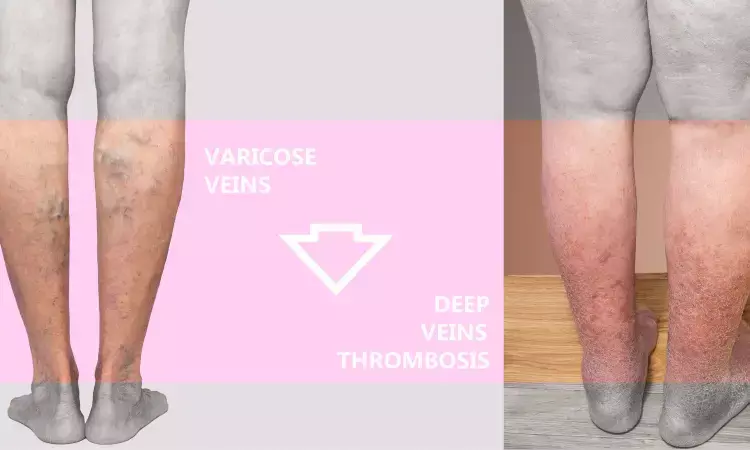- Home
- Medical news & Guidelines
- Anesthesiology
- Cardiology and CTVS
- Critical Care
- Dentistry
- Dermatology
- Diabetes and Endocrinology
- ENT
- Gastroenterology
- Medicine
- Nephrology
- Neurology
- Obstretics-Gynaecology
- Oncology
- Ophthalmology
- Orthopaedics
- Pediatrics-Neonatology
- Psychiatry
- Pulmonology
- Radiology
- Surgery
- Urology
- Laboratory Medicine
- Diet
- Nursing
- Paramedical
- Physiotherapy
- Health news
- Fact Check
- Bone Health Fact Check
- Brain Health Fact Check
- Cancer Related Fact Check
- Child Care Fact Check
- Dental and oral health fact check
- Diabetes and metabolic health fact check
- Diet and Nutrition Fact Check
- Eye and ENT Care Fact Check
- Fitness fact check
- Gut health fact check
- Heart health fact check
- Kidney health fact check
- Medical education fact check
- Men's health fact check
- Respiratory fact check
- Skin and hair care fact check
- Vaccine and Immunization fact check
- Women's health fact check
- AYUSH
- State News
- Andaman and Nicobar Islands
- Andhra Pradesh
- Arunachal Pradesh
- Assam
- Bihar
- Chandigarh
- Chattisgarh
- Dadra and Nagar Haveli
- Daman and Diu
- Delhi
- Goa
- Gujarat
- Haryana
- Himachal Pradesh
- Jammu & Kashmir
- Jharkhand
- Karnataka
- Kerala
- Ladakh
- Lakshadweep
- Madhya Pradesh
- Maharashtra
- Manipur
- Meghalaya
- Mizoram
- Nagaland
- Odisha
- Puducherry
- Punjab
- Rajasthan
- Sikkim
- Tamil Nadu
- Telangana
- Tripura
- Uttar Pradesh
- Uttrakhand
- West Bengal
- Medical Education
- Industry
Graduated compression stockings demonstrate no additional benefit in preventing VTE

Venous thromboembolism or VTE, a common and severe complication of hospitalization, has a high morbidity and mortality rate, with a European epidemiological study reporting an incidence of 110 to 130 cases per 10,000 patients per year and 10% to 12% of deaths being VTE-related.
According to the ENDORSE study, 64.4% of surgical inpatients were at high risk of VTE, according to the American College of Chest Physicians criteria, compared to 41.5% of medical inpatients.
According to a recent study published in the Annals of Surgery, Benedict R.H. Turner and colleagues said that head-to-head meta-analysis and pooled trial arms show no additional benefit of GCS (graduated compression stockings) in preventing VTE and VTE-related mortality. GCS pose a risk of skin complications and economic burden. Their use is not supported for surgical inpatients based on current evidence.
This study compared VTE rates in surgical inpatients with pharmacological thromboprophylaxis and additional GCS vs. thromboprophylaxis alone.
Surgical patients have an elevated VTE risk, and recent studies question whether GCS provides extra protection against VTE compared to pharmacological thromboprophylaxis alone.
The review followed PRISMA guidelines. MEDLINE and Embase databases were searched until November 2022 for randomized trials reporting VTE rates after surgical procedures with pharmacological thromboprophylaxis, with or without GCS. The rates of DVT (deep venous thrombosis), pulmonary embolism, and VTE-related mortality were pooled through fixed and random effects.
Key findings from this investigation are:
- The DVT risk for GCS and pharmacological thromboprophylaxis was 0.85 versus pharmacological thromboprophylaxis alone (2 studies, 70 events, 2653 participants).
- The risk of DVT in pooled trial arms for GCS and pharmacological thromboprophylaxis was 0.54 compared to pharmacological thromboprophylaxis alone (33 trial arms, 1228 events, 14,108 participants).
- The risk of pulmonary embolism for GCS and pharmacological prophylaxis versus pharmacological prophylaxis alone was 0.71 (27 trial arms, 32 events, 11,472 participants).
- No between-group differences were reported in VTE-related mortality (27 trial arms, three events, 12,982 participants).
This study's strength lies in its meta-analysis of 2 well-designed, low-bias head-to-head trials involving 2600 participants. The high-quality evidence supports the presentation of pooled DVT, PE, and VTE-related mortality rates, showing no difference between pharmacological prophylaxis and additional GCS versus pharmacological prophylaxis alone.
Reference:
Turner BRH et al. An Updated Systematic Review and Meta-analysis of the Impact of Graduated Compression Stockings in Addition to Pharmacological Thromboprophylaxis for Prevention of Venous Thromboembolism in Surgical Inpatients. Ann Surg. 2024 Jan 1;279(1):29-36.
BDS, MDS in Periodontics and Implantology
Dr. Aditi Yadav is a BDS, MDS in Periodontics and Implantology. She has a clinical experience of 5 years as a laser dental surgeon. She also has a Diploma in clinical research and pharmacovigilance and is a Certified data scientist. She is currently working as a content developer in e-health services. Dr. Yadav has a keen interest in Medical Journalism and is actively involved in Medical Research writing.
Dr Kamal Kant Kohli-MBBS, DTCD- a chest specialist with more than 30 years of practice and a flair for writing clinical articles, Dr Kamal Kant Kohli joined Medical Dialogues as a Chief Editor of Medical News. Besides writing articles, as an editor, he proofreads and verifies all the medical content published on Medical Dialogues including those coming from journals, studies,medical conferences,guidelines etc. Email: drkohli@medicaldialogues.in. Contact no. 011-43720751


